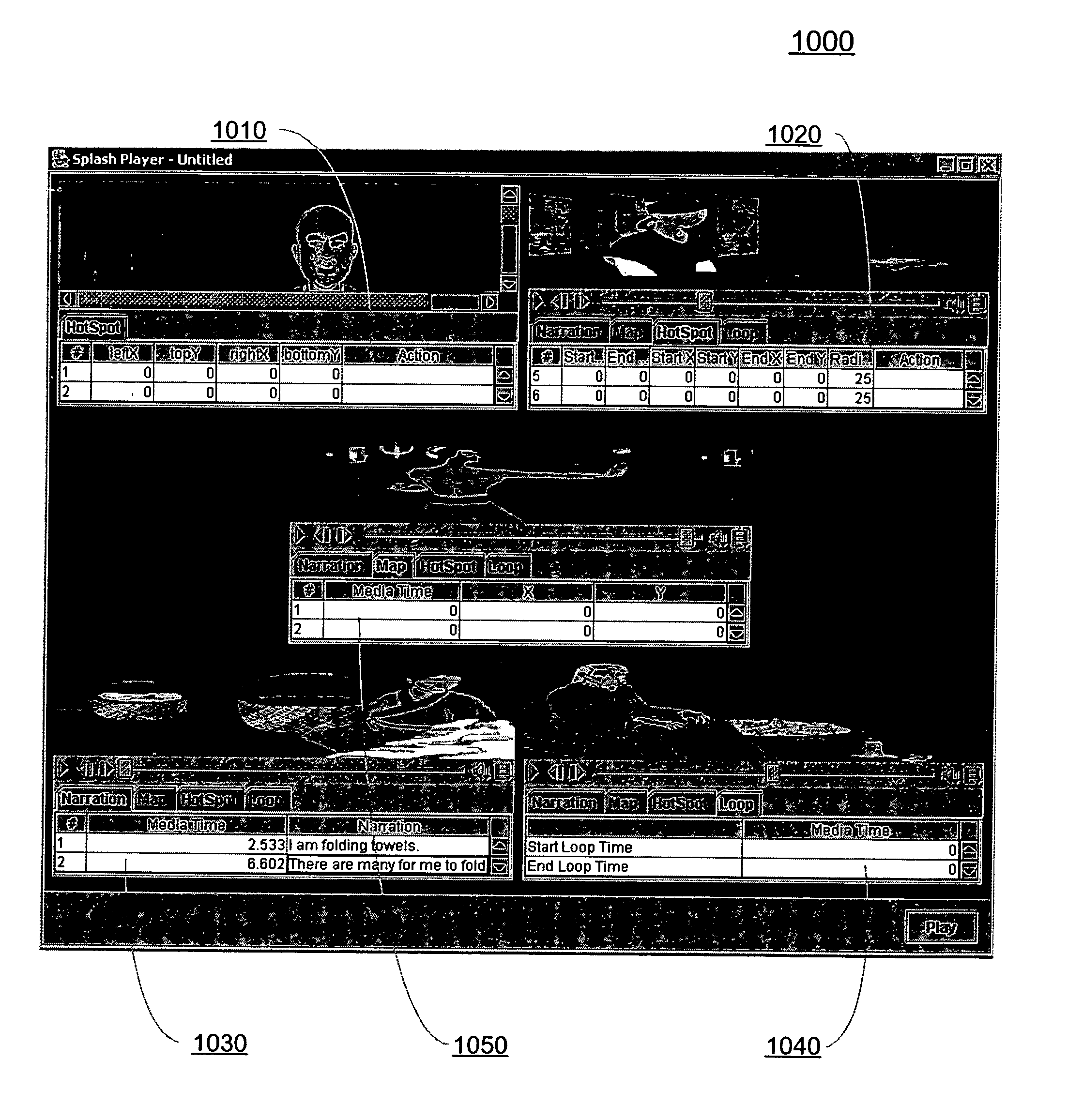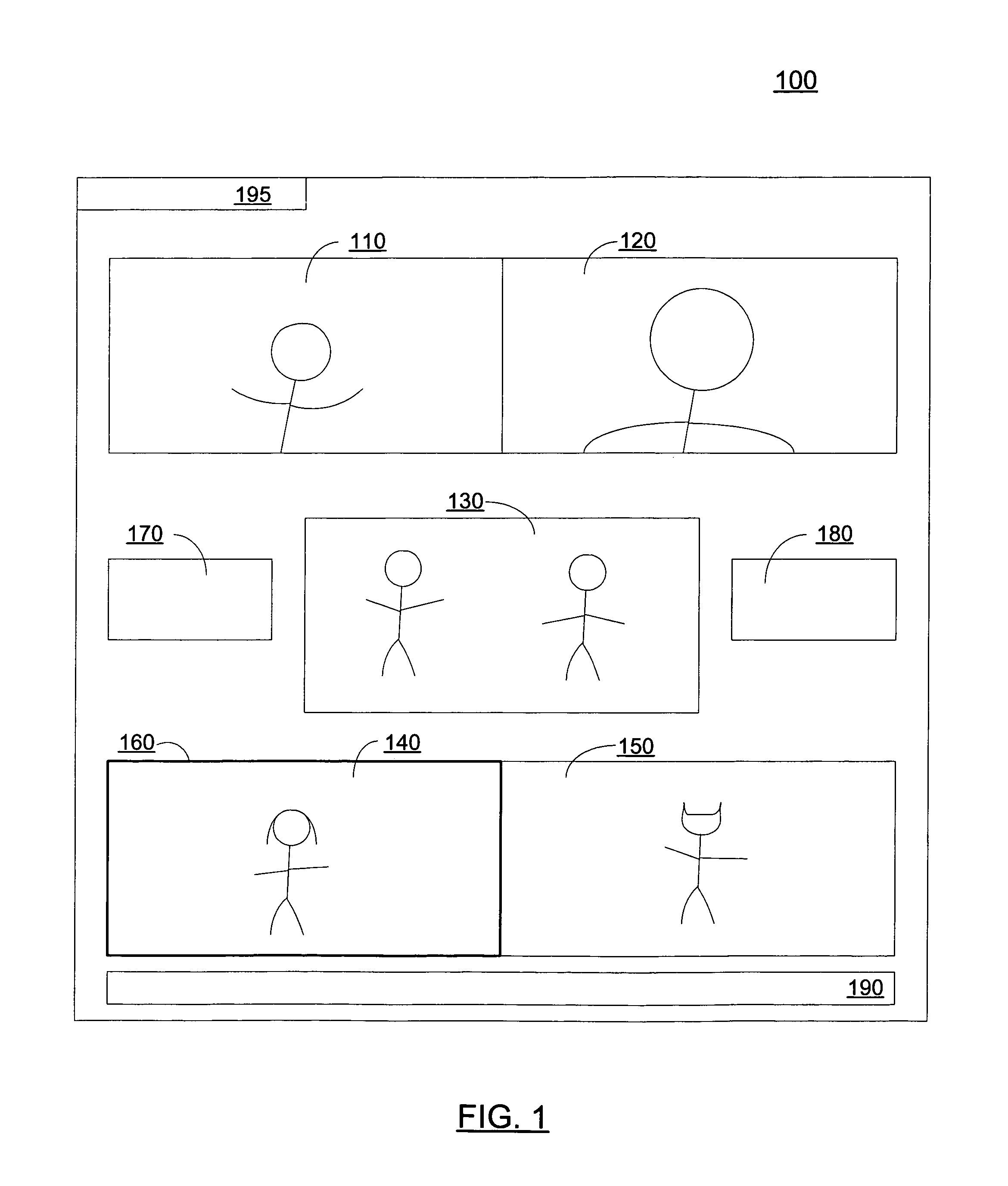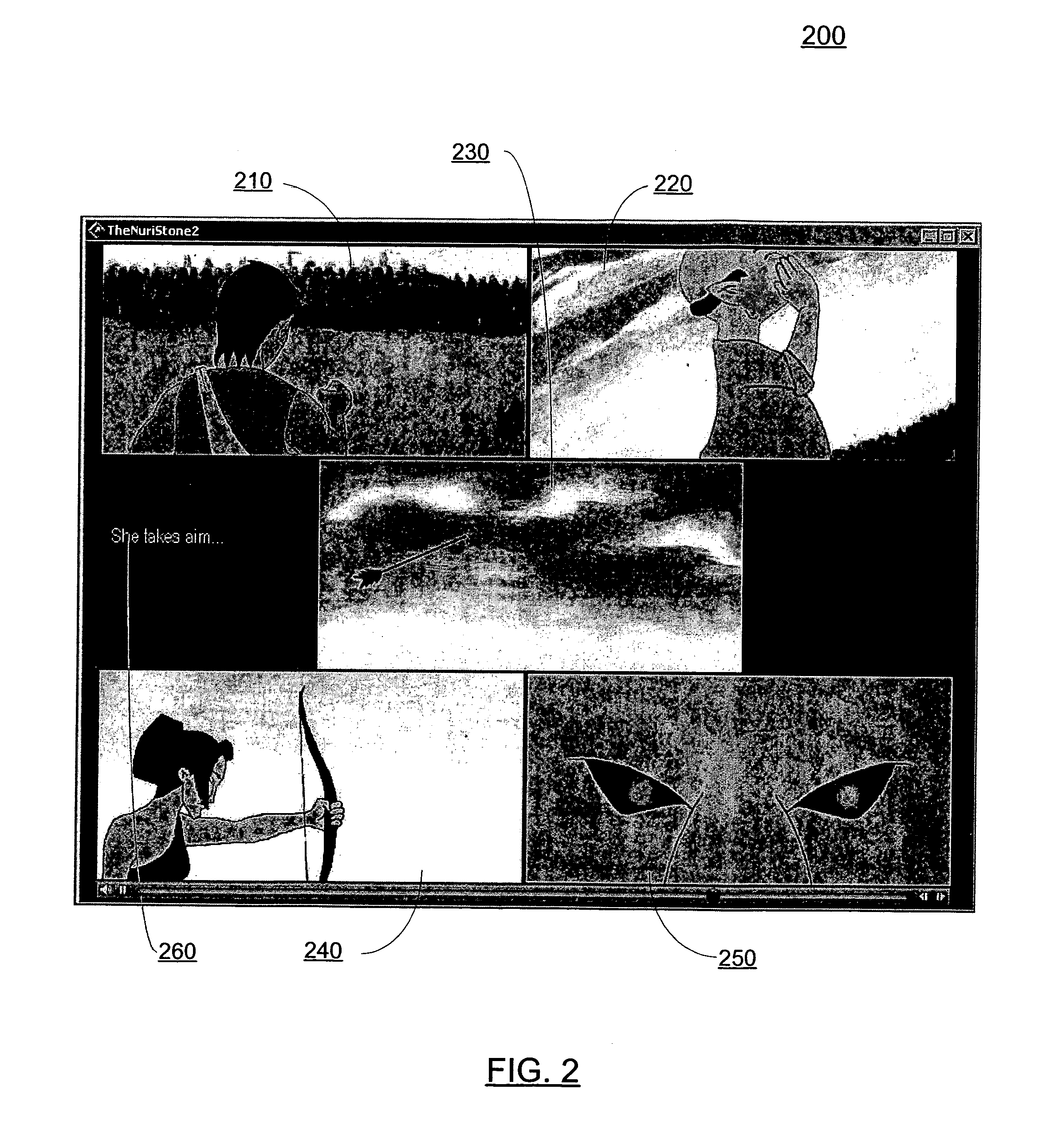Binding interactive multichannel digital document system
- Summary
- Abstract
- Description
- Claims
- Application Information
AI Technical Summary
Benefits of technology
Problems solved by technology
Method used
Image
Examples
Embodiment Construction
[0041]In one embodiment of the present invention, a digital document comprising an interactive multi-channel interface is provided that binds video, text, images, web page content and audio media content types using spatial and temporal boundaries. The binding element of the document achieves cohesion among document content, which enables a better understanding by and engagement from a user, thereby achieving a higher level of engagement from a user A user may interact with the document and explore document boundaries and document depth at his or her own pace and in a procession chosen by the user. The document of the present invention features a single-page interface with customized depth of media content that may include video, text, one or more images, web page content and audio. In one embodiment, the media content is managed in a spatial and temporal manner using the content itself and time. The content in the multi-channel digital document may repeat in a looping pattern to al...
PUM
 Login to View More
Login to View More Abstract
Description
Claims
Application Information
 Login to View More
Login to View More - R&D
- Intellectual Property
- Life Sciences
- Materials
- Tech Scout
- Unparalleled Data Quality
- Higher Quality Content
- 60% Fewer Hallucinations
Browse by: Latest US Patents, China's latest patents, Technical Efficacy Thesaurus, Application Domain, Technology Topic, Popular Technical Reports.
© 2025 PatSnap. All rights reserved.Legal|Privacy policy|Modern Slavery Act Transparency Statement|Sitemap|About US| Contact US: help@patsnap.com



